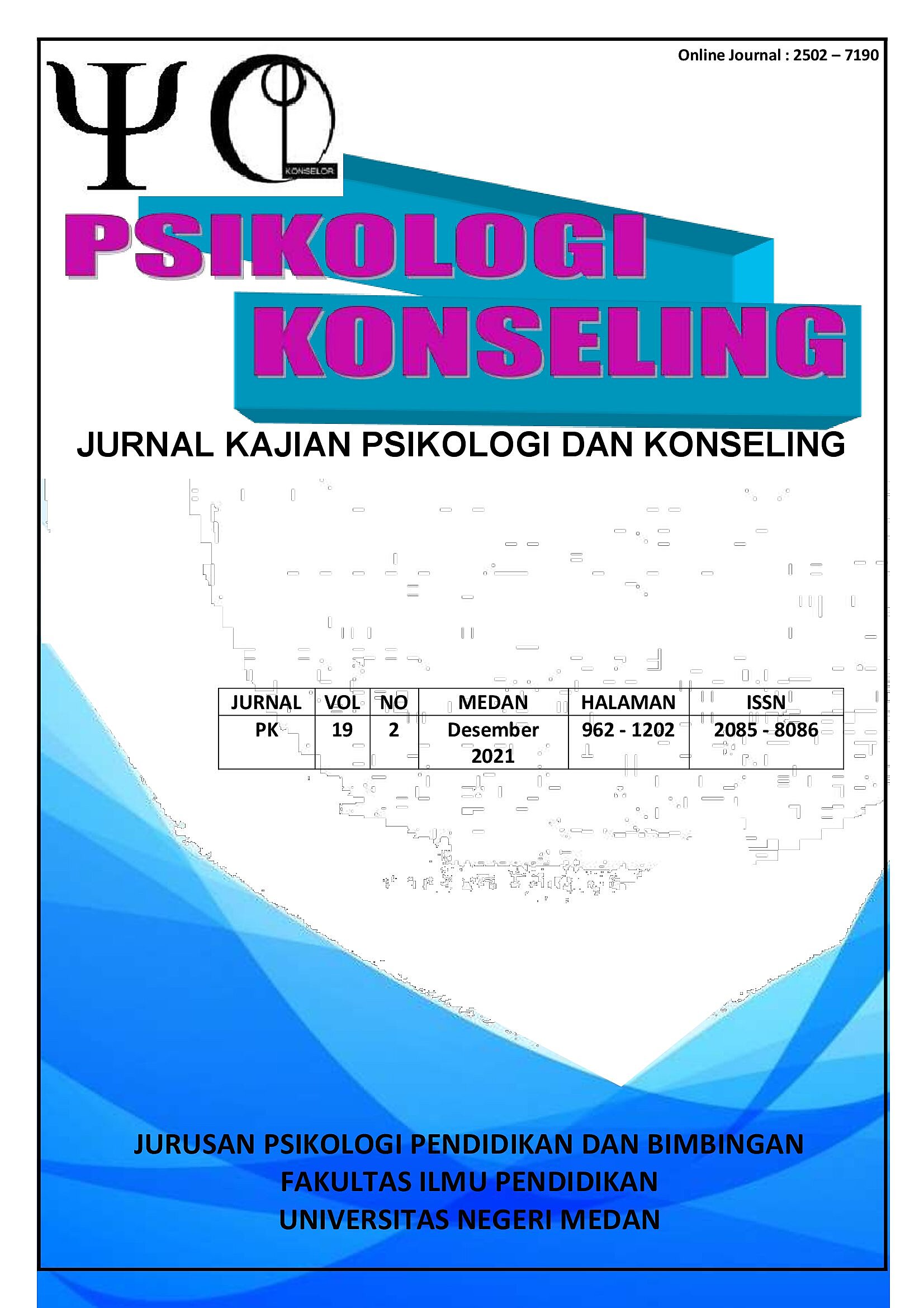Emotional Intelligence Training to Improve the Efficacy of Primary School Teachers
DOI:
https://doi.org/10.24114/konseling.v19i2.24035Keywords:
emotional intelligence, teachers’ efficacy, self-efficacy, teachers’ trainingAbstract
The aim of the current study was to investigate the effect of emotional intelligence training toward elementary teacher. The training given to increase the teachers™ efficacy in students™ engagement, instructional strategies and classroom management. There are three sessions during the training included identifying and understand the emotions of himself and others, identifying and understanding the impact of the emotion used in adopting decisions and managing the emotions of himself and others. Participant were 25 elementary teachers in Intan Permata Hati School. The result taken using the Teacher™s Efficacy Scale (Tschannen-Moran, M., & Woolfolk Hoy, A., 2001) before and after training to investigate the impact of the training. Overall the result showed that the students™ engagement has the biggest impact and emotional intelligence is significant increase teachers™ efficacy. The students™ engagement has the biggest impactReferences
Amstrong, M. (2009). Handbook of human resource management practice. London and Philadelphia: Kogan Page.
Bandura, A. (1977). Self-efficacy: toward a unifying theory of behavioral change. Psychological Review.
Bandura, (1995). Self-Efficacy in Changing Society. Cambridge: Cambridge University Press.
Barari R, Jamshidi L. The Effectiveness of Emotional Intelligence on Job Burnout Mediated the Self-Efficacy Among Elementary Teachers. Int J Educ Psychol Res 2015. https://www.ijeprjournal.org/text.asp?2015/1/3/212/158328.
Di Fabio, A., & Palazzeschi, L. (2008). Emotional Intelligence and Self-Efficacy in a Sample of Italian High School Teachers. Social Behavior and Personality: An international journal, 36(3), 315-326. DOI:https://doi.org/10.2224/sbp.2008.36.3.315
Goleman, D. (1995). Emotional Intelligence. London: Bloomsbury Publishing.
Goleman, D. (1998). Working with emotional intelligence. New York: Bantam Books.
Goleman, D (2016). Emotional Intelligence. Gramedia Pustaka Utama. Jakarta.
Gundlach, M.J., Martinko, M.J. and Douglas, S.C. (2003), "Emotional Intelligence, Causal Reasoning, and The SelfEfficacy Development Process", The International Journal of Organizational Analysis, Vol. 11 No. 3, pp. 229-246. https://doi.org/10.1108/eb028974
Hair, Joseph F., Anderson, Rolph E., Tatham, Ronald L., Black, William C., 1998. Multivariate Data Analysis, Fifth Edition. Prentice Hall. United State of America.
Penrose, A., Perry, C., & Ball, I. (2007). Emotional Intelligence and Teacher Self Efficacy: The Contribution of Teacher Status and Length of Experience. Issues In Educational Research, 17, 107“126.
Perry, C., Ball, I. & Stacey, E. (2004). Emotional Intelligence and Teaching Situations: Development of a New Measure. Issues in Educational Research, 14(1), 29-43. http://www.iier.org.au/iier14/perry.html
Perry, C. & Ball, I. (2005). Emotional Intelligence and Teaching: Further Validation Evidence. Issues in Educational Research, 15(2), 175-192. http://www.iier.org.au/iier15/perry.html
Tschannen-Moran, M., & Woolfolk Hoy, A. (2001). Teacher Efficacy: Capturing an Elusive Construct. Teaching and Teacher Education, 17, 783-805. http://dx.doi.org/10.1016/S0742-051X(01)00036-1
Downloads
Published
How to Cite
Issue
Section
License
Copyright (c) 2021 Cicilia Hendarto

This work is licensed under a Creative Commons Attribution-ShareAlike 4.0 International License.
This work is licensed under a Creative Commons Attribution-ShareAlike 4.0 International License.




